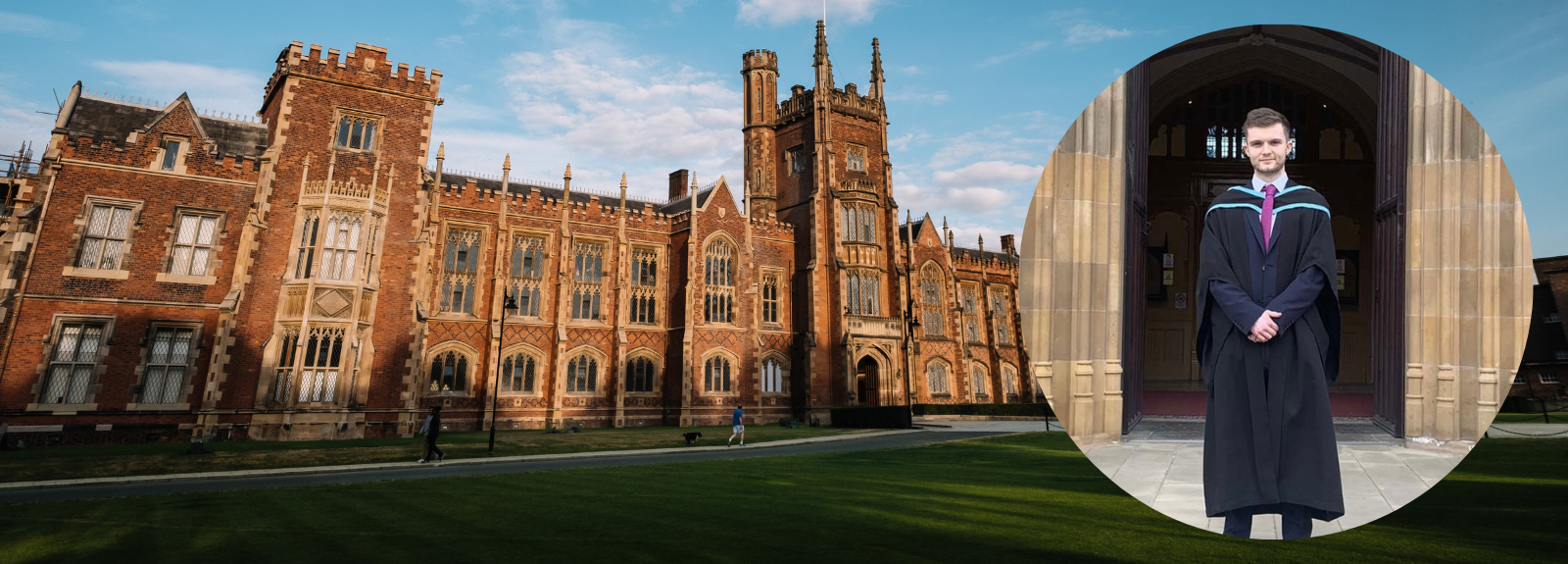Learn more about the engaging postgraduate experience that awaits here at Queen's
Rory Campbell, MSc Quantitative Finance (now called MSc Financial Analytics).
Q: Undergraduate course?
BSc Finance.
Q: How do you relax and stay healthy?
I’m a member of Dunfanaghy Golf Club, and regularly play 5-a-side football.
Q: Why did you decide to study for a postgraduate qualification?
I really enjoy working with numbers so careers within the scope of data analytics and quant research are of real interest to me. I wanted to develop new skills, specifically improving my coding skills in coding languages such as R, SQL and Python. After working in Dublin as a Private Equity Fund Analyst for nearly two years, I knew that it wasn't a job that I wanted to do long-term so I took the decision to come back to Queen’s.
Q: What doors do you hope the qualification will open?
The ability to code in the finance industry is a key skill that many employers look for nowadays and helps to differentiate you in a competitive job market. Being able to model and price different financial instruments using code is what really makes this course stand out from other programmes.
Q: What were some course highlights?
Queen’s invited industry professionals from a wide range of jobs to help us to understand how the theory we applied in the lectures was used in their day-to-day jobs. I thoroughly enjoyed the guest speakers during the Asset Pricing module. The Computational Methods for Finance module in second semester is another highlight. Although challenging, this module really helps to understand how you can model different financial problems through the use of the Python coding language. We learnt how to price options and bonds using code.
Q: Was the postgraduate class size different to your undergraduate degree?
With a smaller class size than my undergraduate degree, I felt it was easier to ask lecturers questions and benefit from many discussions in lectures between students and lecturers.
Q: What does a typical week look like?
I am currently in class three days a week. Being off two days gives me ample time to go to the library and work on assignments or study for tests that are coming up. As well as that, some lecturers put on weekly drop-in sessions where you can meet either virtually or in-person to discuss any issues or questions that you may have - this is something I take full advantage of. The vast majority of my lectures take place in Riddel Hall - in the lecture hall, computer lab or trading room. There is also a common pod to eat your lunch and relax, as well as study pods to use.
Q: Were you part of any societies or activities during your postgraduate study?
I am an ESG Sector Head in the Queen's Student Managed Fund. This has put my undergraduate and postgraduate degree skills to good use!
Q: What were your expectations versus reality of doing a postgraduate?
I didn't expect to enjoy it as much as I have. What may have seemed daunting before starting my Master’s, quickly turned into a really immersive and enjoyable learning experience with plenty of support and guidance from lecturers and the Management School as a whole. I have thoroughly enjoyed my postgraduate experience.
Q: Any top tips for managing the workload?
I think the most important thing is to try and keep on top of everything. For me, that means trying to do at least a couple of hours work every day outside of lectures, whether that be reading a couple of textbook chapters or going over lecture slides. Don't be afraid to reach out to lecturers if you are unsure of anything or want feedback.
Q: What would you say to a student interested in studying a course in this subject area?
I think the main thing is to know what you are signing up for. If you want to improve your financial knowledge, as well as your coding skills, then I would highly recommend this course. As there are many deadlines throughout each semester, some of them quite close to each other, it is imperative to manage your time well. It is a very rewarding course, but only if you are willing to put the effort in.
